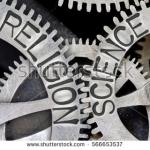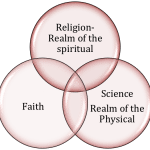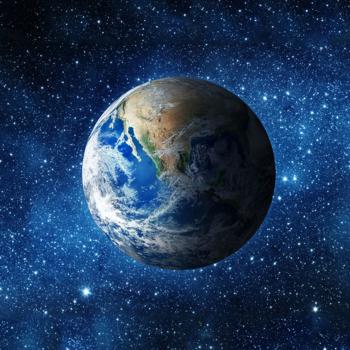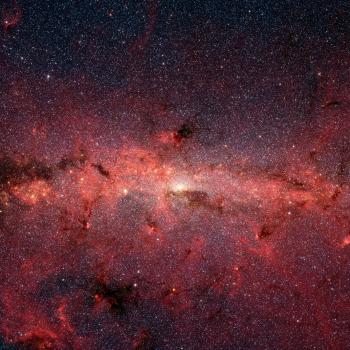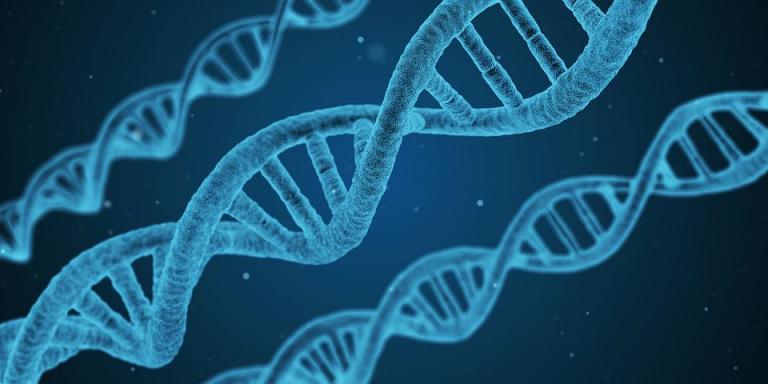 Are religion and science mutually exclusive? Does the knowledge of how things work “prove” that God does not exist? My study of Medical science and the Qur’an (and Bible) over the past few decades has enabled me to review this subject objectively. I will be sharing my thoughts on the rather controversial subject of religion vs science with you in a series of articles.
Are religion and science mutually exclusive? Does the knowledge of how things work “prove” that God does not exist? My study of Medical science and the Qur’an (and Bible) over the past few decades has enabled me to review this subject objectively. I will be sharing my thoughts on the rather controversial subject of religion vs science with you in a series of articles.
This is part 2 of a series of articles on this subject.
In my last post, I addressed the following myths.
- Scientists don’t believe in God and/or are nonreligious
- Religious people don’t believe in Science. Religious people are not scientists.
In this post, I am going to address the following:
- “Scriptures (Religion) are anti- science or anti-education.” I am specifically referring to the Qur’an and the Bible (The Qur’an more so given my connection to it as a Muslim, and because of a higher level of familiarity with it).
- “Science is anti-religion”. “Science does not mix with religion”.
To start of, let me make a confession. And no, I am not a Catholic, but have no problem confessing what I don’t know.
I don’t pretend to be an “expert” of religion or science. Yes I have studied the Quran and the Bible for over 20 years. Yes, I have been in medical field for over 40 years, and I am an educator (Director of Graduate Medical Education) for over 25 years. However, as I acquire more knowledge and the more I know, the more I realize that I don’t know much.
I am not being modest. I am just stating a fact.
Let’s also set few other things straight.
- Scriptures- The Qur’an and Bible are not ‘How to” manuals.
- They are NOT books of Science. You cannot approach them as such.
- Faith is beyond science. If you believe in something after “science has proven it”, that’s no longer faith. Faith is about believing before science can “prove” or “disprove” your beliefs.
- Not contradicting myself within a span of a paragraph, but faith is not (or should not be) totally blind either. Faith is not about following something or someone like sheeps and cattles.
- “Absolute truth” in science often does not exist. Science deals with probability. If you review the history of science, you will also quickly realize that a lot of things we knew to be “facts” decades and centuries ago were later found to be not true. Scientists have reversed their thinking repeatedly.
I often jokingly tell my medical residents and other physicians during medical lectures that the half-life of medical truth is about 10 years. We used to teach that the hardening of the arteries is irreversible.
Not true anymore.
Just about 10 years ago, we used to teach opioids are relatively safe and there is no ceiling dose as long as you can tolerate the side effects. We were pretty sure that to be true at the time.
Not true anymore.
We used to tell our patients their thyroid is normal based on the blood test we had at the time. With better science and development of more accurate tests now, the same patients are finding out they did have a thyroid problem. But we were telling our patients they have no problem with a lot confidence.
Poking needles to relieve the pain (aka acupuncture) was laughed at by medical scientists in the west until very recently. It was viewed more as voodoo than a medical modality, having no scientific basis.
Not true anymore.
I can go on and on.
I see similar reversals in astronomy and other fields of science.
I found A Parade of Scientific Reversals by Stephen D Evans very relevant to this discussion.
Following is a partial excerpt from one of my facebook friends’ comment after my last Patheos post.
Science, by definition, never declares an eternal truth. Rather, via methodological naturalism it forms hypotheses of what may be the truth. Science *always* leaves open the possibility that *any* given hypothesis of what may be the truth can be replaced by a stronger hypothesis based on empirical data.
That is, science never declares something as true; rather it declares what is most likely true. Science does not try to declare eternal truths. It can’t- again, it can only state probabilities based on empirical evidence. It is not a tool to be used to discover eternal and certain truths.
Now back to the myth that “Scriptures/Religion are anti-science”.
It is very true that the Christian church in the past acted against scientists (“Earth is flat” or ” the sun revolves around the earth” rather than the other way around).
However the truth is that the Bible did not teach that. It is also very true that many Muslim clerics (“Mullahs”) are anything but scholars. Many of them are quite frankly very illiterate.
The fact is that the Qur’an and Islamic teachings put a premium on seeking and acquiring knowledge.
Next Page: Qur’an’s emphasis on knowledge and Contemplation.
Never miss another post. Sign up for my newsletter. Click here.

